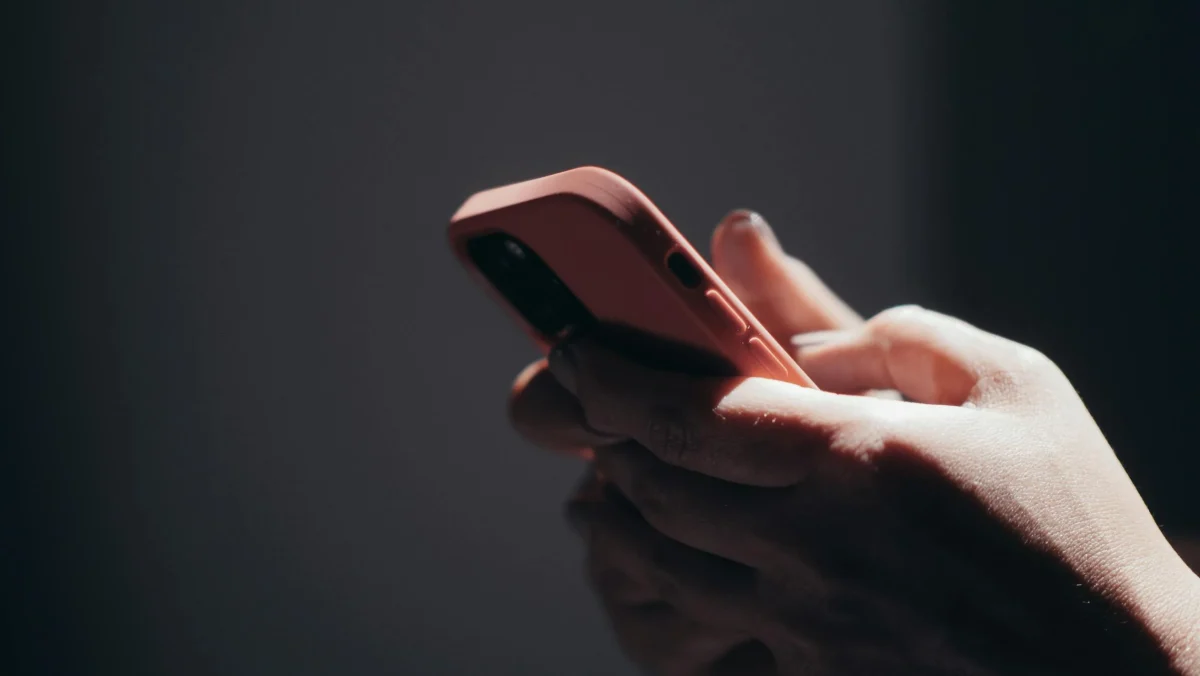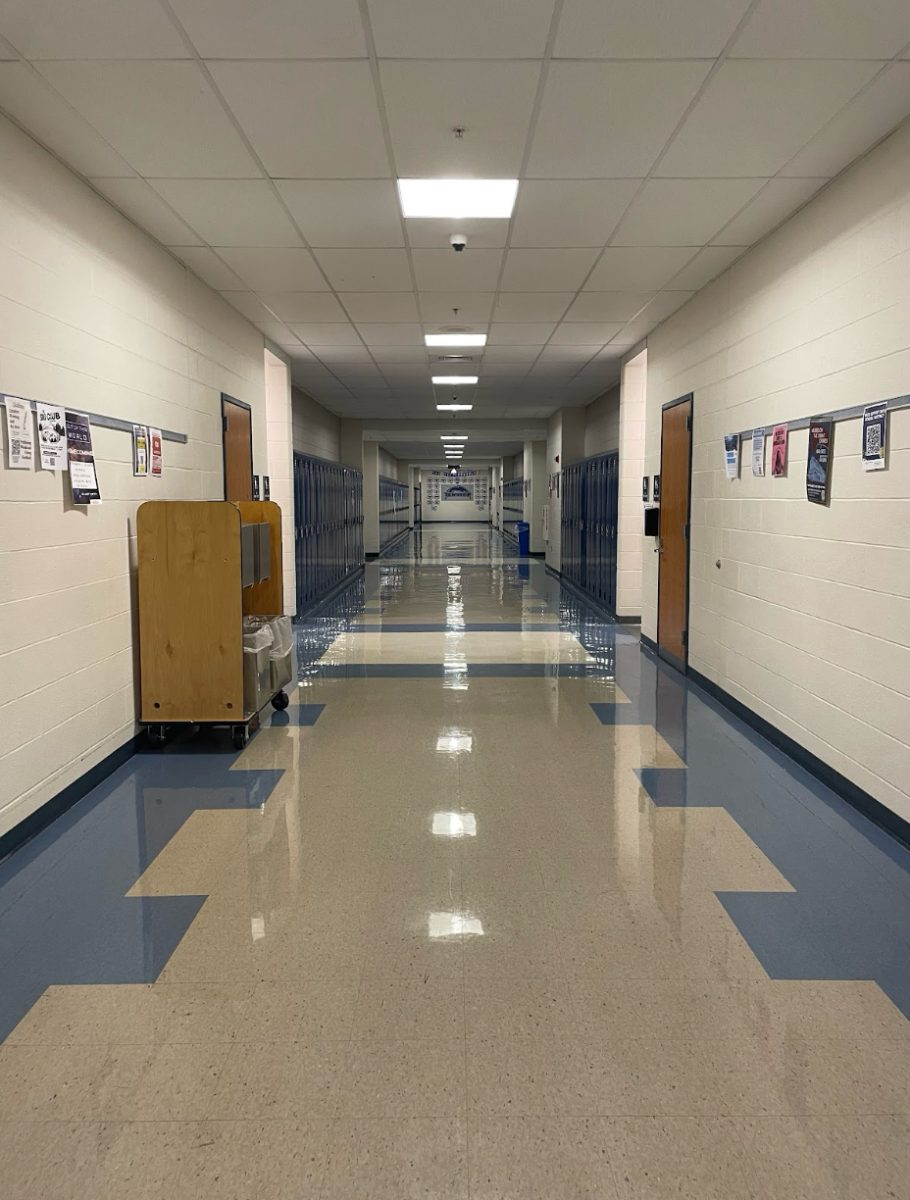Smartphones—the little devices almost every person in society carries with them every day- whether it’s to assist them with communication or entertainment. Almost every high school student carries a cell phone with them throughout their day at school. Cell phones are a part of everyday life, but in the school environment, they are distracting. This is a valid concern, considering that cell phones are addictive and can often distract students from focusing on the reason they are really at school: education. Another concern is that high school students are not responsible or mature enough to use their phones the way they are intended to be used, considering that cyberbullying is a significant issue in schools. That is partially true, but I do not think that concern applies to all students.
The question the government and educational system presents is: How can we fix this issue? In years past at Manheim Township, cell phone use was not heavily moderated. Cell phones were not supposed to be visible or used during instruction time, but this rule was lightly enforced. Personally, as a student at MTHS, this year’s phone policy is the perfect balance. It is restrictive enough so that students are not distracted by their phones during instruction time, but not so restrictive to the point where students are craving their phones during the day. Restricting the use of cell phones completely would do more harm than good, but some restrictions are still necessary.
Senator Ryan Aument of Lancaster recently proposed a lengthy restrictive policy that passed regarding cell phone use in schools. This proposal is aimed at improving students’ mental health and academic performance during the school day. The first proposal requires the use of secure, lockable phone bags in all schools across the Commonwealth. The second proposal would establish a pilot program for a number of schools to utilize secure, lockable phone bags purchased through funding provided by the state. Reporting data will track changes related to mental health surveys, incidents of bullying, incidents of self-harm, academic performance, and other valuable data to determine the impact of a phone-free school setting. In Senator Aument’s proposal, he states a number of statistics about teen mental health to support his claim. One of those statistics comes from a 2018 study by the Pew Research Center: 45% of teens reported feeling overwhelmed by the drama on social media and 26% reported feeling worse about their own lives.
It is a known fact that social media negatively impacts everyone’s mental health. It makes us have a fear of missing out, or it makes us feel like we aren’t productive enough, or like we do not look good enough. While Senator Aument makes a valid argument, there are other alternatives to combat this issue that would not be as restrictive. Social media plays a large role in many people’s lives and we need to learn how to moderate how we consume it. There are many flaws to Aument’s proposal, the most significant of all being that it is a safety concern. In the past month, some local schools have received threats of violence. Many of these threats are discovered through students’ access to the media and the posts made by their fellow students. In a situation in which a threat was posted during school hours on a student’s private story, that threat would not be discovered. Parents who communicate with their kids throughout the school day also feel this to be a safety concern. This policy would be appropriate for students below high school age because of the lack of maturity, and kids of that age are known to use their phones irresponsibly. However, high school is the age in which some responsibility must be given to them and they must be given freedom to make those decisions on their own.
Another statistic Aument lists is that nearly 60% of female students experienced persistent feelings of sadness or hopelessness and that 10% of female students reported attempting suicide, according to the Centers for Disease Control. Society has built up many expectations of women that are unreasonable and these expectations are enhanced through social media. Social media is not a cause of these statistics—pre-existing gender norms for girls are the cause of this.
In high school girls often feel like they are being judged. Teenage boys can make the school environment feel less safe and welcoming for girls. Especially when there are rules in place for not “distracting” male peers. In the Barbie movie, the character Gloria played by American Ferrera gives a speech/pep talk to Barbie after she has traveled to the real world only to realize that patriarchal society still exists. Every societal expectation of women is contradicted and it is impossible to be ‘perfect’: “You have to be thin, but not too thin…. You have to say you want to be healthy, but also you have to be thin…You’re supposed to stay pretty for men, but not so pretty that you tempt them too much or that you threaten other women because you’re supposed to be a part of the sisterhood,” she said. This makes teenage girls feel confused and feel like it is impossible to be enough. Especially because during teenage years, the brain is not fully developed enough to process these feelings of confusion, which often lead to outbursts or intense emotions that the individual does not know how to express or process. If societal expectations of girls were not as unreasonable but also contradicting, would these statistics be as high?
High school students nowadays have complicated schedules. Plans are constantly being changed throughout the day, and these plans must be communicated with parental figures. For example, if a student decides to stay after school for an event at the last minute, they must communicate with their parents to organize a ride home. Phones give teenagers an opportunity to demonstrate their independence, and if we take away their phones in school— the parent is now obligated to manage their schedules.
This plan argues that social media use during school impacts mental health, school performance and sleep. The only problem this policy would solve is school performance. This plan aims to restrict phone usage rather than teaching students how to manage screen time, process the media they are consuming and make good decisions on social media. If you restrict phone usage and social media use during school hours, it would increase screen time outside of school hours. The amount of sleep students receive would decrease because they would feel the need to overcompensate in consuming social media outside of school hours for the time missed during school hours.
To solve this problem, I would suggest replacing Aument’s statewide policy with the phone policy MTHS has implemented now, along with a mandatory media literacy course for all freshmen. The main argument made was that social media is affecting mental health and school performance. The issue is that teenagers’ brains are not fully developed to the extent to which they know how to comprehend the media they consume, but even full-grown adults struggle with this too. Teenagers’ behavior is heavily influenced by social media and the education system recognizes this, but instead of taking the procedures necessary to slowly educate adolescents to be aware of how the media they consume affects them, they make frantic efforts to restrict access to media. If we continuously restrict teenagers’ access to media that is easily accessible to them, they will not know how to restrict and moderate their media consumption and reaction to it in their adult years.
Instead, what if there was a way to educate students in school on how to manage their reactions to the media? Media literacy is a course that is not taught at most schools. MTHS has a one-semester media literacy course each year and one I took as a freshman. The course teaches students to be aware of how the media they consume affects them. It is mostly discussion and it can be extremely eye-opening to people who are not socially aware. This may not be a solution for all students, but it could be beneficial to many. Of course, not all students will benefit because there will always be students who show little interest and little effort in the school environment. When I took this class with Mr. McCarthy, we interviewed other students in the school about their media intake, to collect information about how self-aware other students are while using and consuming media. We asked questions like: “Do you think the music you listen to affects your behavior?” and “What is your algorithm on social media and do you think it influences your behavior?” We were not surprised to find out that when we asked these questions, students struggled to come up with an answer. Most then admitted that it does affect their behavior in some manner. A media literacy course for all high school freshmen could be a powerful tool in helping students understand how social media influences them, teaching them skills they will need both inside and outside of school. Rather than restricting students, we should empower them to make informed choices about their media consumption and screen time.









